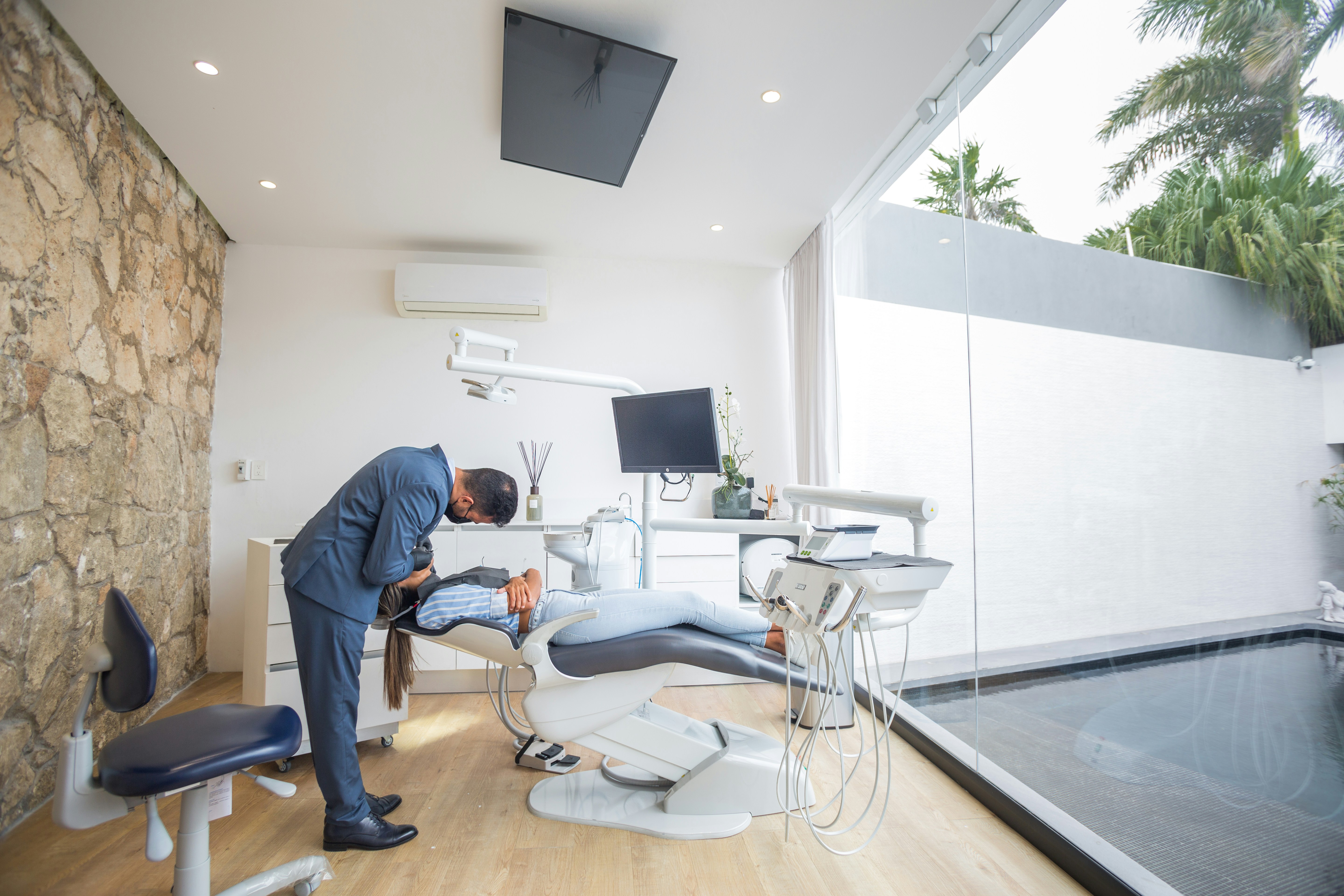Dynamic Scheduling in Dentistry: AI-Driven Appointment Optimization
Managing appointments efficiently in dental practices can feel like solving a complex puzzle. Dental offices go through unique scheduling challenges from unexpected cancellations to optimizing chair time. These challenges directly affect patient satisfaction and your practice’s profitability. Fortunately, AI-powered dental scheduling systems are transforming how you manage your appointment books. This will bring unprecedented efficiency and intelligence to dental scheduling management that minimize gaps and reduces administrative workload, creating a more seamless experience for patients.

What makes dental scheduling particularly challenging?
Sometimes, patients fail to appear for scheduled appointments. On average, dental clinics experience about ten to fifteen per cent no-shows and last-minute cancellations. This means wasted chair time that could be used on other patients and revenue loss for your practice.
Secondly when practices try to compensate for no-shows they overbook. This often results in extended wait times when all the patients arrive. And when they feel you don’t value their time, you’ll lose business and get complaints from staff who face increased pressure.
Lastly, traditional scheduling increases the administrative burden on your staff. Front desk teams spend hours on end making calls, handling reschedule requests and organizing the appointment book. This repetitive and time-consuming work pulls them from more important patient interactions.
How does AI Enhance Appointment Scheduling in Dentistry?
AI algorithms look at historical data to identify patterns in patient behavior, procedure durations and peak demand periods. Using this AI-obtained data you can create a schedule based on real-time data and not guesswork.
Cancellations are common in dental practice. But with AI-powered dental scheduling, you can quickly identify optimal candidates to fill up the cancelled slot based on factors like treatment urgency, patient flexibility and procedure type. Some custom models even automatically contact waitlisted patients.
Additionally, Voice AI agents learn individual patient’s mannerisms and what they prefer. This includes the time of appointment they prefer, cancellation history, or timekeeping history. The AI then factors these behaviors into scheduling decisions significantly reducing your no-show rate.
What are the Benefits of AI-Driven Scheduling for Dental Practices?
What tangible improvements can practices expect from implementing AI-powered dental scheduling?
First, expect improved patient experience and retention. When you reduce wait times, offer smart reminders and more convenient scheduling options, you create a more patient-friendly experience. Practices generally report higher patient retention rates after implementing smart AI scheduling systems.
Using AI-powered dental scheduling will ensure you utilize all available appointment slots. This potentially increases production without extending office hours. The system is strategic in placing appointments to reduce downtime between patients and still allow enough time for procedures.
When you automate routine scheduling, confirmation processes, and waitlist management, you free up workers to do other meaningful tasks. AI also eliminates the need to input data manually, reducing costly mistakes during scheduling.
What are the Key Features of AI-Powered Scheduling Systems?

What functionality should dental practices seek in scheduling technology?
- Smart reminders and follow-ups: AI-powered dental scheduling can customize communication timing, frequency and channel from patient response patterns and appointment risk analysis. For high-risk appointments the system might send additional reminders and alert staff to make personal contact.
- Integration with practice management software: Flawless data exchange between your practices’ systems and scheduling tech ensures consistent information sharing across platforms. This reduces double booking and lowers your administrative workload.
- AI-based patient prioritization and time-slot optimization: Sophisticated AI systems look for patients who should get specific openings based on treatment urgency, insurance status, production value, and past attendance history.
How Can You Implement AI Scheduling in a Dental Practice?
To implement an AI system successfully, you must plan carefully. This begins with an assessment of your current scheduling patterns, identifying problems and setting goals for what your practice hopes to achieve. However, many practices prefer a phased implementation - starting with the basic features before implementing the more advanced ones.
Additionally, ensure you choose a system that fits your scheduling needs. You should evaluate potential solutions considering compatibility, vendor support, and user-friendliness, among others. It’s also important to confirm that the system can accommodate practice-specific requirements like provider preferences or operational limitations.
Lastly, while intuitive to use you must embrace training programs. Successful practices select a ‘super user’ with advanced training who can support other team members as you transition to AI.
What are the Future Trends in AI-Optimized Dental Scheduling?
- Next-generation AI will make instantaneous scheduling optimizations based on factors like traffic patterns, weather conditions and even provider energy levels throughout the day.
- AI schedulers will seamlessly coordinate virtual screenings, in-office treatments and follow-up consultations in an intelligent workflow, optimizing both patient convenience and practice efficiency.
- Voice-activated scheduling technology will allow you to make scheduling changes chairside without interrupting patient care while patients will interact with sophisticated voice assistants for appointment requests and confirmations.
AI-driven dental scheduling is among the most impactful practice management technology innovations, bringing intelligent, data-informed solutions to some of the longest-standing problems in the industry. Through no-show reduction, provider time optimization, and patient experience improvement, these systems bring measurable value to both practice productivity and profitability.
As dentistry continues to develop in a more competitive landscape practices that leverage how AI improves appointment scheduling in dental practices will have an advantage in operational efficiency and patient satisfaction. To see how AI scheduling can revolutionize your practice, book a demo today and take the first step towards a more efficient tomorrow.